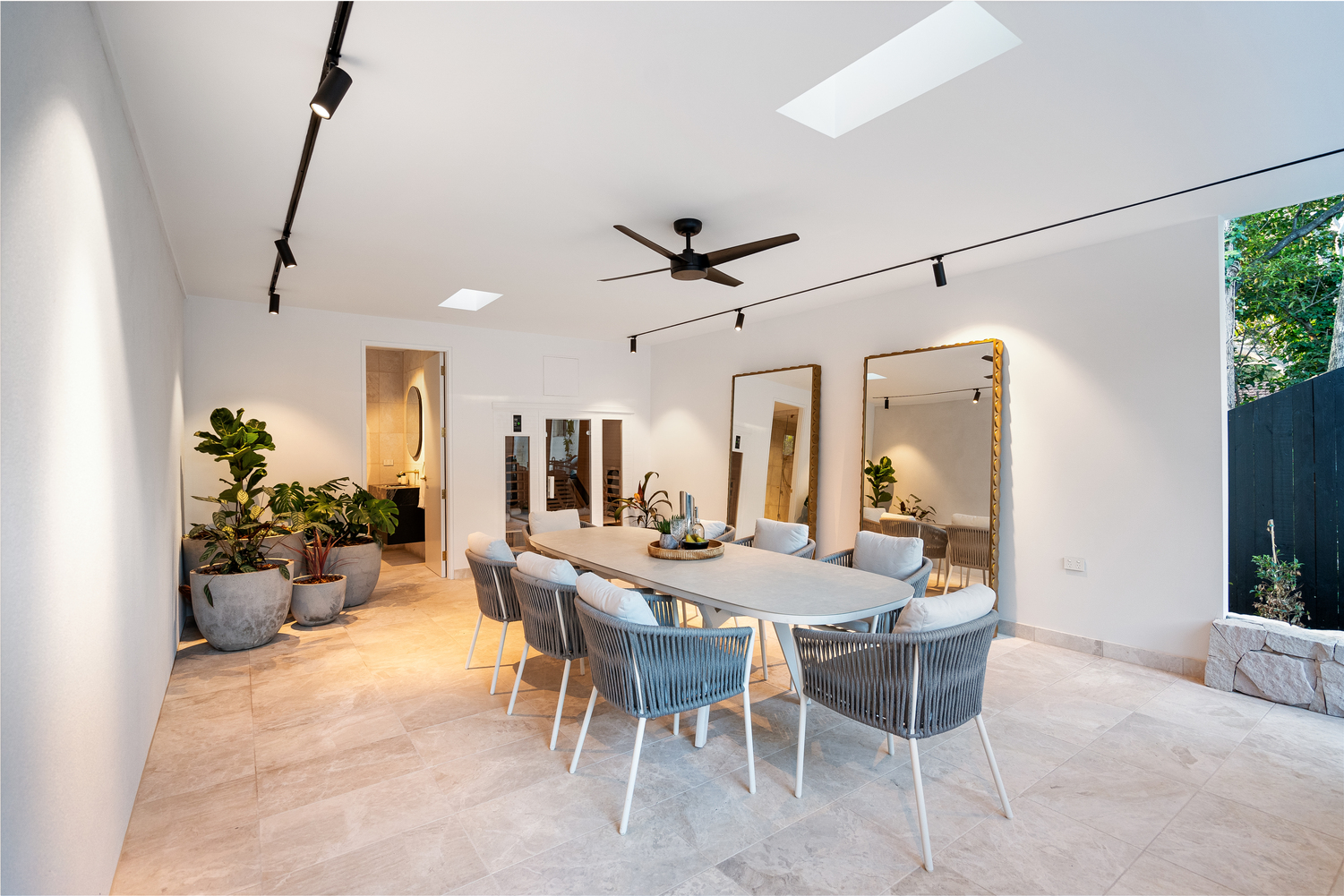
Pavers
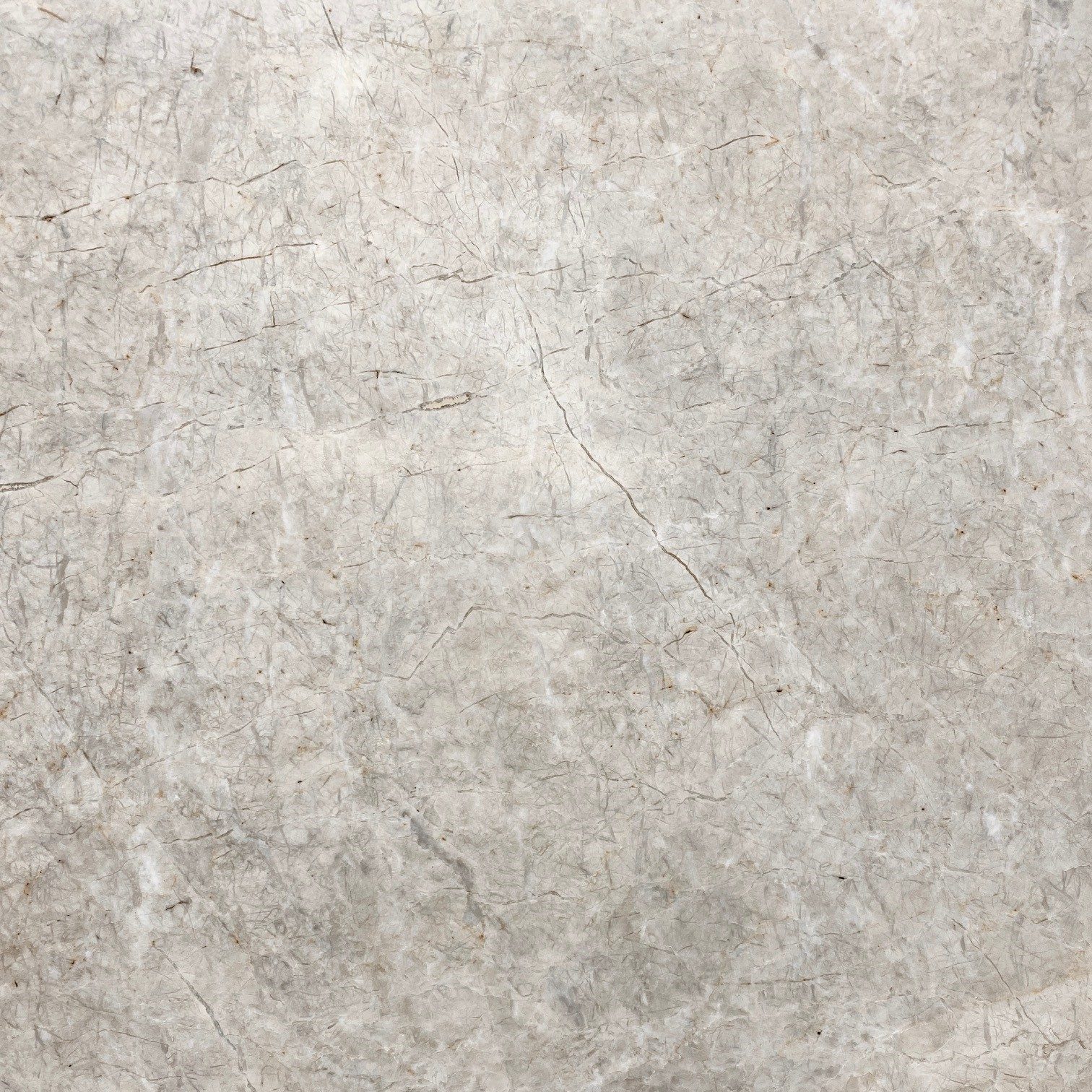
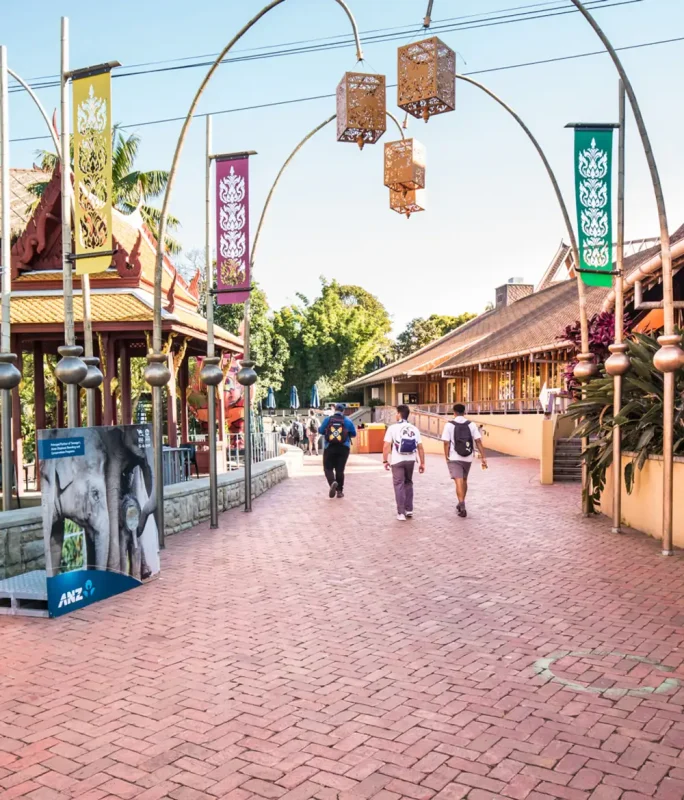
The Largest Range of Stone, Concrete and Brick Pavers
Explore Outdoor Pavers at MD Brick: Pool Pavers, Pathway Pavers, Driveway Pavers and More.
Save time looking for pavers for your next project. Our extensive range of pavers covers a variety of shapes as well as textures. You will have your choice of stone, concrete and clay brick pavers.
Our team of experts can assist you with choosing the best pavers for your needs.
MD Brick can supply everything from large format stone pavers to modern sustainable walkway pavers.
Access all paver types at MD Brick: Leading brands and boutique brands
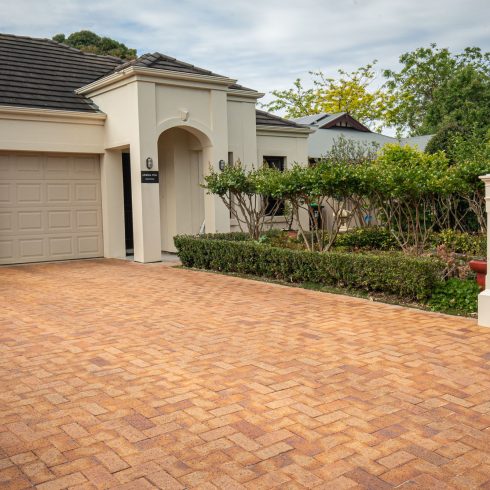
Driveway Pavers
The benefits of driveway pavers go beyond their attractiveness in setting the scene at the front of your home. Driveway pavers have a longer lifespan than cheaper traditional methods used on driveways such as crushed granite or gravel and even coloured or stencilled concrete. This is due to their strength and tested durability. MD Brick can supply you with driveway pavers in a variety of materials, however, the most suitable types are clay brick pavers, concrete and granite stone cobbles.
Driveway pavers are thicker and stronger than many pavers used for other areas such as pools and patios. See our Frequently Asked Questions section below to find out more about Driveway Pavers for your next project.
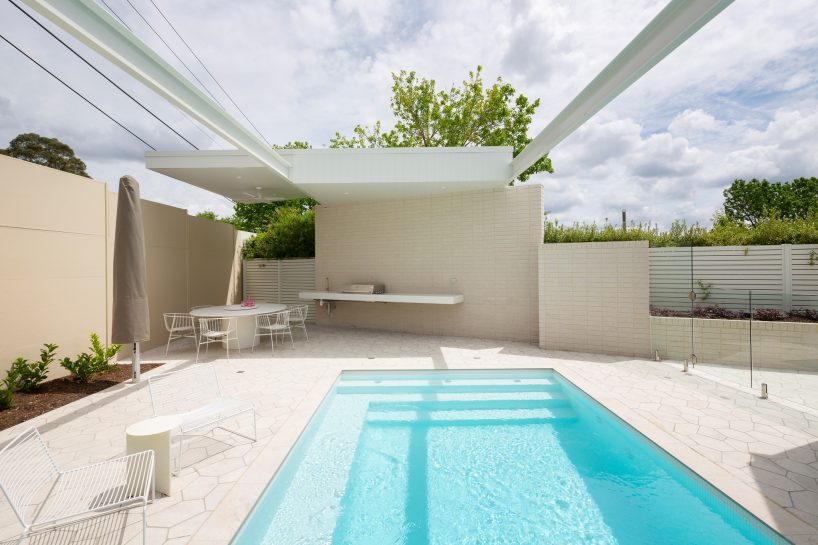
Pool Pavers
If you are installing a pool or renovating a pool area, you will be looking for pavers that not only look and feel great but are also salt-resistant, water-resistant, safe and practical. Choose from square, rectangle and irregular shapes with various laying patterns to suit your area. The options are varied, allowing you to create a pool area that will withstand wear and tear and the test of time. MD Brick can guide you to the best pavers for pool areas.
See our Frequently Asked Questions Section below for more information on Pool Pavers.

Pathway Pavers
Pathway pavers provide a durable and visually appealing surface for garden paths, walkways, and outdoor spaces. Suitable options include clay pavers, concrete pavers, and natural stone pavers. These materials offer a range of styles, colours, and textures, ensuring a perfect fit for any landscape design while providing long-lasting, slip-resistant surfaces.
See our Frequently Asked Questions section below to find out more information about Pathway Pavers.

Permeable Pavers
Permeable pavers are innovative paving solutions designed to allow water to pass through their surface, reducing runoff and promoting natural groundwater recharge. Ideal for driveways, walkways, and patios, they help prevent flooding, minimise erosion, and improve stormwater management, all while offering a durable, attractive, and environmentally friendly option for outdoor spaces.
See our Frequently Asked Questions section below to find out more about MD Brick’s Permeable Pavers Range.
FAQ About Pavers From MD Brick
In Australia, the best pavers for around a pool are slip-resistant materials such as travertine or stone pavers with some texture, clay pavers or concrete pavers. Travertine is popular for its cool temperature underfoot and natural aesthetic, clay pavers offer a traditional look with excellent durability, and concrete pavers are cost-effective and versatile, making them suitable for various areas and design preferences.
In the Australian climate, choosing the right pavers for a pool area is crucial not only for aesthetics but also for safety and durability. The ideal pavers should be slip-resistant, withstand exposure to water, salt and chlorine, be durable under the harsh Australian sun, and maintain a comfortable temperature underfoot. You must consult with your landscaper or the CMAA website before purchasing your pool pavers to make sure you understand the many different variants pavers carry, especially around salt and chlorinated pools.
Some natural stone pavers, such as sandstone and light-coloured limestones are very porous and prone to salt attack if not sealed properly before and after installation. Some concrete pavers that are not heavily compacted are also not suitable for pool areas as they will also be attacked by salt and chlorine.
Here’s a detailed look at some of the best pavers for around a pool and why they stand out:
Natural Stone Pavers
- Natural stone pavers offer you the most versatile and aesthetically pleasing products to suit any pool paving project. The variation in colours, dimensions, sizes, textures and thickness is an integral part of the unique natural look and feel that natural stone pavers offer.
- Selecting the right stone typically involves knowing the appearance that you want and the type of use you require
- Sealing stone pavers is important around a pool area.
View Range
Concrete Pavers
- Cost-Effectiveness: Concrete pavers are more affordable than natural stone options, making them a budget-friendly choice.
- Versatility in Design: They come in various colours, shapes, and textures, allowing for customisation to fit any pool design.
- Durability: Concrete pavers are sturdy, and capable of handling heavy foot traffic without significant wear. They are also great with exposure to salt and chlorine.
- Some concrete pavers may not be suitable for pool areas. You should check with your landscaper first.
View Range
Clay Pavers
- Natural Aesthetic: Clay pavers offer a warm, natural look that blends well with outdoor landscapes, providing a rustic yet elegant appearance.
- Durability and Colour Retention: High-quality clay pavers are known for their longevity and ability to retain their colour, even when exposed to UV light and pool chemicals.
- Slip Resistance: Similar to travertine, the texture of clay pavers provides good slip resistance, making them safer for wet areas.
View Range
Each of these paver types has its own set of benefits, making them suitable for pool areas. The choice between them depends on personal preference, budget, and the overall design theme of the outdoor space. Stone and clay brick pavers offer natural beauty with practical benefits like coolness underfoot and slip resistance. In contrast, porcelain and concrete pavers provide versatility and durability, with the added advantage of being low maintenance and cost-effective, respectively.
Yes, sealing pavers around your pool is recommended to enhance their durability, prevent staining, and reduce the growth of algae and moss. Sealing helps protect against the harsh effects of pool chemicals and sun exposure, while also making the pavers easier to clean. It’s a crucial step to maintain the aesthetic and functional quality of your pool area.
MD Brick supplies a range of cleaners and sealers.
View Cleaners Range
View Sealers Range
The cost of pavers around a pool typically ranges from $40 to over $100 per square meter, depending on the material. Concrete pavers are at the lower end of the price spectrum, while natural stone pavers like travertine and granite are more expensive. Installation costs vary by region and complexity of the design, adding to the overall expense.
To get a quote for your paving project you can contact our expert team.
Contact Us
Laying brick pavers is a rewarding DIY project that can significantly enhance the aesthetic and value of your outdoor space. Whether you’re creating a patio, walkway, or driveway, the process involves careful preparation and precision but is entirely achievable with some patience and the right tools. Head over to our brochures and downloads page in our resources menu for a more detailed guide for DIY enthusiasts looking to save money by undertaking this project themselves.
Yes, you can paint pavers to refresh or change their appearance. It’s important to clean them thoroughly and let them dry before painting. Use a primer suitable for concrete or stone surfaces, followed by concrete or exterior paint for durability. Applying a sealant after the paint dries can enhance longevity and protect the colour from fading or peeling.
Painting pavers is a great way to revitalise your outdoor or indoor space, offering both aesthetic and protective benefits to the pavers. However, several key steps and considerations must be considered to ensure a lasting and visually appealing result. We have added a Quick Guide to Painting Pavers on our resources page that you can follow to assist with this process.
Yes, certain pavers can be used for a driveway. Driveway pavers are a popular choice due to their durability, aesthetic appeal, and ability to withstand the weight of vehicles. Pavers come in various materials, including concrete, brick, and natural stone, offering flexibility in design to complement any home’s exterior.
View Range
To make the best decision when choosing your driveway pavers, MD Brick recommends you consider the following important points.
First and foremost, think about how much vehicle weight and traffic will your driveway have. Your driveway pavers need to be a minimum thickness of 50mm to be suitable for carrying Light Vehicle traffic. Light vehicles (LV) are vehicles that, when fully loaded, have a gross weight of less than 3 tonnes. This category includes cars, utilities, delivery vans and some light 2-axle trucks.
- Water and rain conditions may also affect the pavers you choose. Take note of the slip resistance and gradient of your driveway to choose the best possible driveway pavers.
- Clay, concrete and natural stone pavers are all suitable for driveways as they contain a very high density and overall compressive strength.
- Permeable pavers are also a good choice for driveways. These pavers are designed to filter and drain water away from the driveway.
- Interlocking pavers are also a great choice for driveway pavers as they have a high compressive strength and their shape allows for less turning and movement.
View Range
For driveways in Australia, pavers ranging from 50×100 mm to 600×600 mm are commonly utilised, with 150×150 mm and 150×225 mm sizes being particularly popular. These dimensions strike a balance between aesthetic appeal and the necessary strength to support vehicle weight. Larger pavers can provide a contemporary appearance, whereas smaller sizes offer traditional durability through their interlocking capability.
View Range
Driveway pavers typically range in thickness from 60mm (about 2.36 inches) for standard residential use to 80mm (about 3.15 inches) for heavier traffic or commercial applications. This thickness ensures durability and the ability to withstand the load of vehicles, providing a long-lasting and sturdy driveway surface that resists cracking and shifting over time.
View Range
The cost of a driveway paved with pavers varies widely, and the cost of both materials and installation should be considered. The final price depends on factors such as the type of pavers chosen (concrete, brick pavers, or natural stone), the complexity of the design, and any additional landscaping or preparation work required. Prices can increase significantly for premium materials and intricate designs.
Contact Us For A Quote
Permeable pavers are specialised paving materials designed to allow water to pass through their surface and infiltrate the ground below. They are used in paving systems to manage stormwater runoff and reduce the strain on traditional drainage systems. They often feature voids filled with aggregate or pebbles to facilitate water movement while maintaining structural stability.
Permeable pavers have engineered voids filled with aggregates that allow water to pass through the surface to layers below. Beneath the pavers, a base course of compacted aggregate and sometimes geotextiles or drainage pipes ensures water is filtered and either stored, infiltrated into the ground, or directed to appropriate drainage systems.
View Range
- Environmental Benefits: They help reduce water runoff, recharge groundwater, and prevent erosion.
- Stormwater Management: Permeable pavers decrease the load on existing drainage infrastructure by allowing water to infiltrate rather than pool or flow away.
- Reduced Heat Island Effect: The open design can help lower surrounding temperatures compared to traditional impermeable surfaces.
- Sustainable Materials: Many pavers, like Island Block’s ECO range, are made with recycled aggregates.
- Compliance with Regulations: Increasingly, local governments encourage or mandate the use of permeable surfaces to address water conservation and management needs.
View Range
- Residential Driveways and Patios: Manage rainwater and enhance aesthetics.
- Commercial Parking Areas: Reduce surface water pooling.
- Public Spaces and Walkways: Prevent erosion and promote sustainable urban drainage.
- Bioswales and Rain Gardens: Integrate with green infrastructure for urban water management.
If you are looking for more than just bricks for your next project MD Brick has you covered.
Bricks are our biggest selling product at MD Brick, but we know builders, architects, landscape architects and interior designers are often looking for something with a unique aesthetic or characteristic to them. This is how we have become the biggest distributor of masonry building and landscaping supplies in NSW. We have experienced sales representatives who are ready to answer your questions.
We want to help our customers find the best products for their project, and this is why we supply more than just the big brands. Our expertise and dedicated service will give you peace of mind when choosing your products.
Contact us for more help with your bricks.











